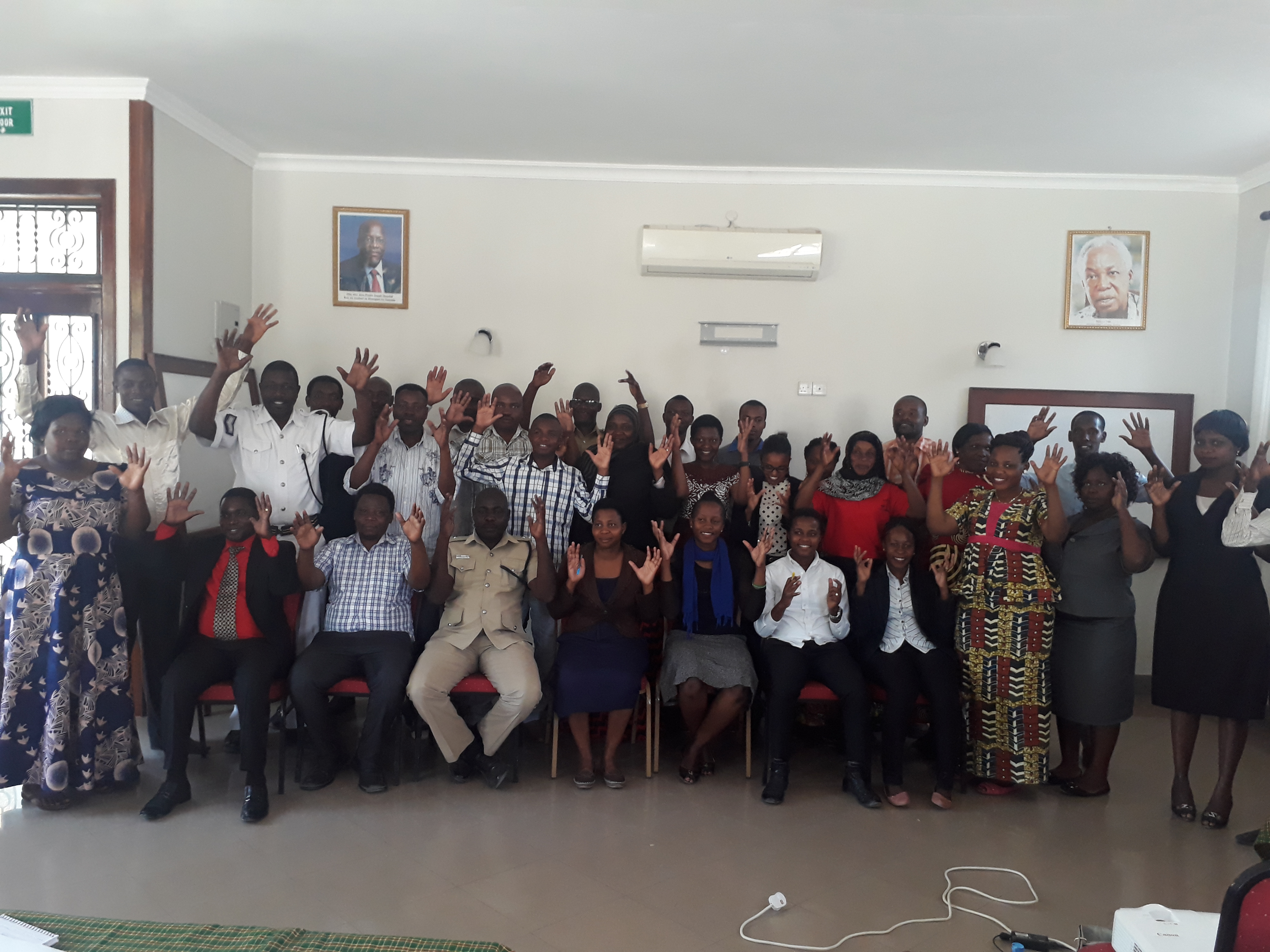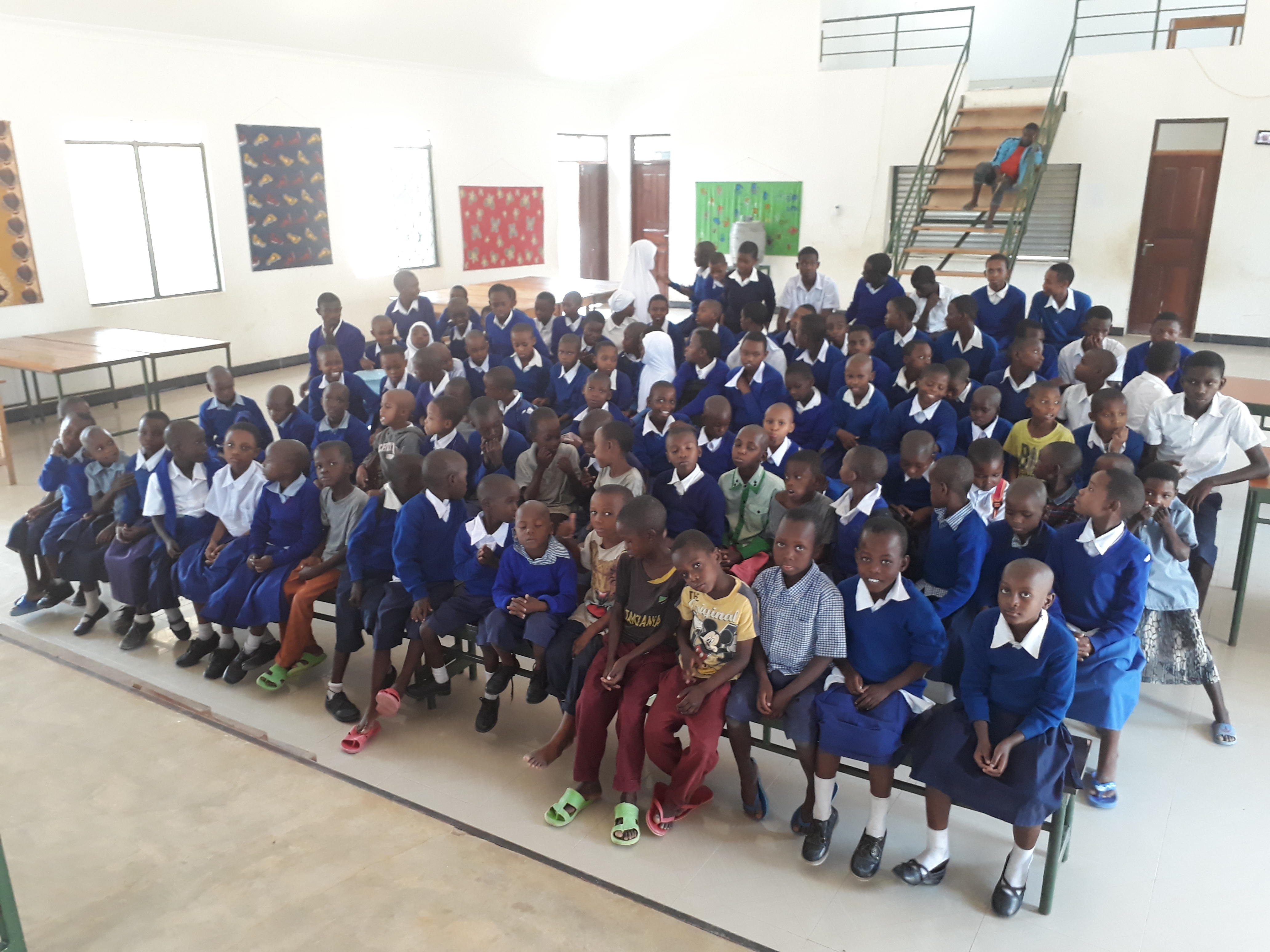The Mount Kilimanjaro Christian School for the Deaf (MKCSD) is a mission school. The aim of MKCSD is to offer education to the very poor, disadvantaged Deaf in Tanzania. The government of Tanzania, through the Ministry of Education, has been unable to successfully establish specialized schools for the Deaf.
School
Currently, Tanzania has only one secondary school for the Deaf which is owned by the Lutheran Church in Njombe Region. However, a few primary schools exist which have been built by Christian churches. Most deaf people in Tanzania are not educated and are alienated even by their closet relatives. Many parents are ashamed of their children’s deafness and hide them for fear of losing status or prestige. Deaf children are often kept at home and given low skill responsibilities such as washing dishes, laundry, tending cattle, plowing the fields, doing small jobs for their parents, etc. Many are left alone which leads to an immoral life in a very isolated and desperate situation.
Apart from social factors, there only one secondary school for the deaf operated by Lutheran Church of Tanzania in Njombe Region which lack special facilities.
A key hindrance in acquisition of education above primary school is lack of special facilities and teaching methods for the deaf.
Special facilities to train deaf students are in place in a few specially dedicated primary schools run by Christian churches. However, these are inadequate to accommodate a growing deaf population in Tanzania. Inclusion of the Deaf with hearing students in unsuitable environments causes lower quality education since sign language and supportive methods are not used. This results in poor outcomes in local and national examinations.
An example case: Dar Es Salaam Region, with the largest city in Tanzania, has the most educated deaf population in Tanzania. They only have three deaf people who attained university education level. There are 10 Deaf who graduated from high school. And approximately 100 deaf people who have a sixth grade education. The rest are either primary education level or never attended any formal education program. Tanzania has approximately 1,00,000 deaf people in 30 regions.
Due to low literacy and a negative attitude toward the Deaf, their employment level is very low. This affects their economic well-being and future prospects. Most of the Deaf have failed to be gainfully employed and other life opportunities are limited.
These adverse conditions have left the deaf community in poverty. Hence, the greatest need at the moment is to construct more schools for the Deaf. The availability of schools would provide education to equip the Deaf and hard of hearing for a prosperous future; enabling them to empower their community for the better.
The overall objective of this project is to put in place and run a Christian school, which will offer high standards of education and instill Christian morals in the community. Under each of these programs, MKCSD will pursue the following goals:
- Education Program.
- To increase intellectual and skill development opportunities for the Deaf and inspire more deaf people to take interest in their own career development.
- To create conditions under which deaf people can maximally realize their potential right up to the highest degrees of academic qualification and at internationally competitive levels.
- Specific objectives.
- To carry out the Gospel of Jesus Christ and Christian discipleship as well as build the love of God among deaf people.
- To build a modern school with double stream classes from Primary one to Primary seven, from primary seven to secondary level, from secondary to higher education (college, vocational training).
- To build the student dorms, dinning hall, kitchen, and a housing block for the teachers as part of the school campus.
- To build other facilities e.g. administration, toilet facilities, septic tanks, arts and crafts block, football and netball fields and other facilities for games.
- To provide clean water, electricity, telephone and other accessories for communication, information, entertainment and education.
- To purchase and/or acquire vehicles, cycles and any other means of transport and communication aimed at facilitating the work of the school.
- To stimulate better awareness and public understanding of deaf life, culture and rights. To reduce public discrimination and injustice against deaf people. To train tomorrow’s deaf leaders and make a significant contribution to their nation and possibly the world.
- To offer education to deaf orphans.
- To encourage qualified deaf academics to be instrumental in substantially improving the educational situation for all deaf people.
- The project will provide an appropriate atmosphere for conducting National Examinations.
- The school will work in compliance to the guidelines set forth by the Ministry of Education as well as the Tanzania National Council of Examinations.
- It will enhance the school’s external relationships with public schools.
- It will lessen negative environmental exposure to the students like scorching sunshine, strong winds and rainfall.
- As it is expected to be a multi-purpose facility, the spiritual lives of members of the school community will be enriched through community prayer meetings and Christian conferences.
To achieve these objectives, the activities and plan for the project’s implementation will be determined by the success of ongoing financial donations from partnering churches, charity organizations, NGOs, grant foundations, financial institutions, sponsors, and individuals.
The actual cost will depend on the magnitude of expenses including the nature, size and location of the project as well as the cost of administration.
These expenses will also involve land acquisition, maintenance and improvement; planning and feasibility studies; architectural and engineering design; construction, including materials, equipment and labor; field supervision of construction; construction insurance and taxes during the construction process.
The following are the main parts of the project to be constructed on a single large campus:
- Elementary school building
- Elementary male dormitory and female dormitory
- High school building
- High school male dormitory and female dormitory
- College building
- College male dormitory and female dormitory
- Administrative block
- Kitchen and dinning hall
- Auditorium block/Conference hall
- Staff Quarters
- Electricity (Electrical Materials)
- Water supply
- Buses and operational vehicles
- Office furniture and equipment
- Protective Fencing
- Sports field and gymnasium
The management of the MKCSD will ensure the daily, monthly and annual care of the school and its staff. It will work with and make recommendations and requests to the Ministry of Education, donors and other government and local organizations for the good of the project. They will also liaise closely with the local community.
As MKCSD is a charitable organization working with the disabled, introducing the matter to the Ministry of Health and Social Welfare and Ministry of Education and Vocational Training, we would have tax exemption from Tanzania Revenue Authority.
This project will be built in phases depending on the regularity of donations from the various sources of funding. It is expected and estimated that the school will take several years to be completed. After the primary school is completed and the school activities run smoothly, plans may be made for a secondary school. Then plans may further be made for a college and/or a vocational training center. The project work plan or implementation plan may change as deemed necessary and the budget revised accordingly.
Please donate to support school project


